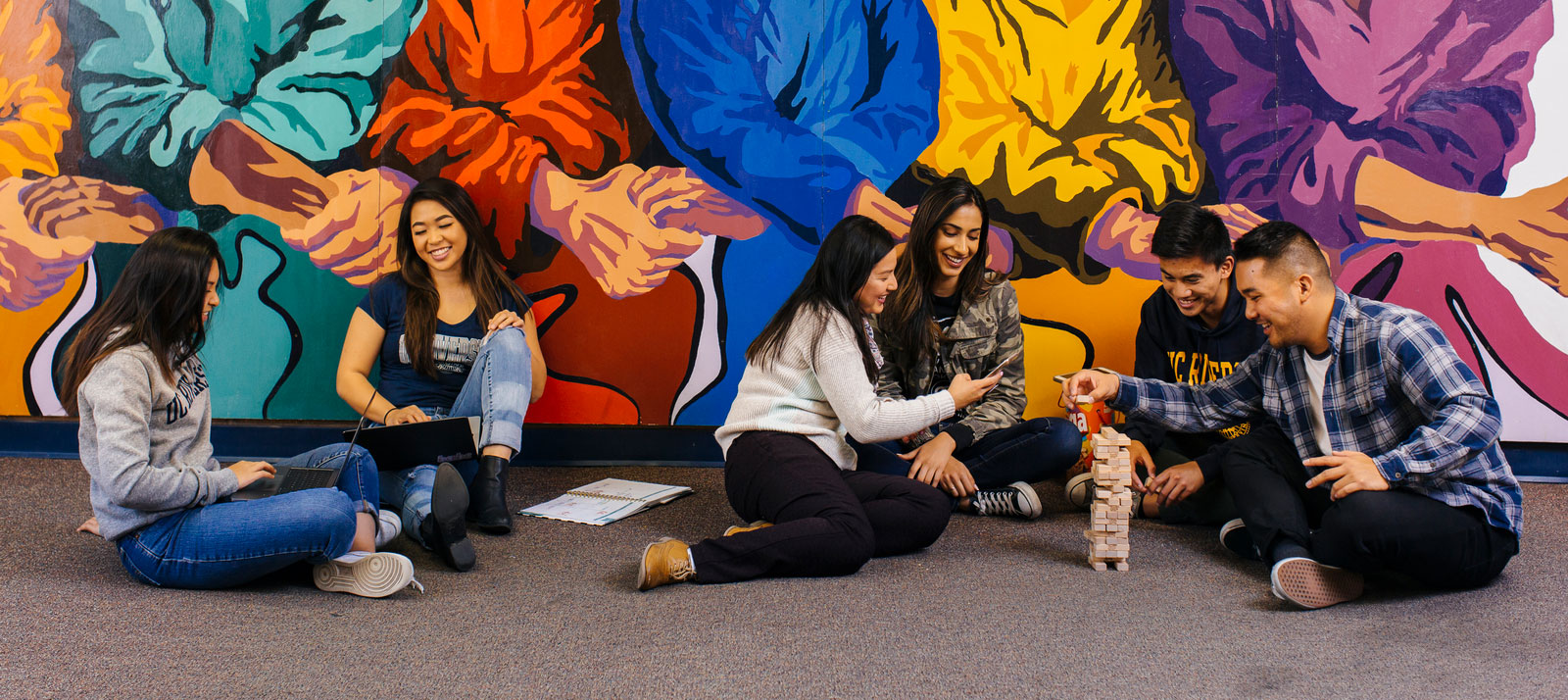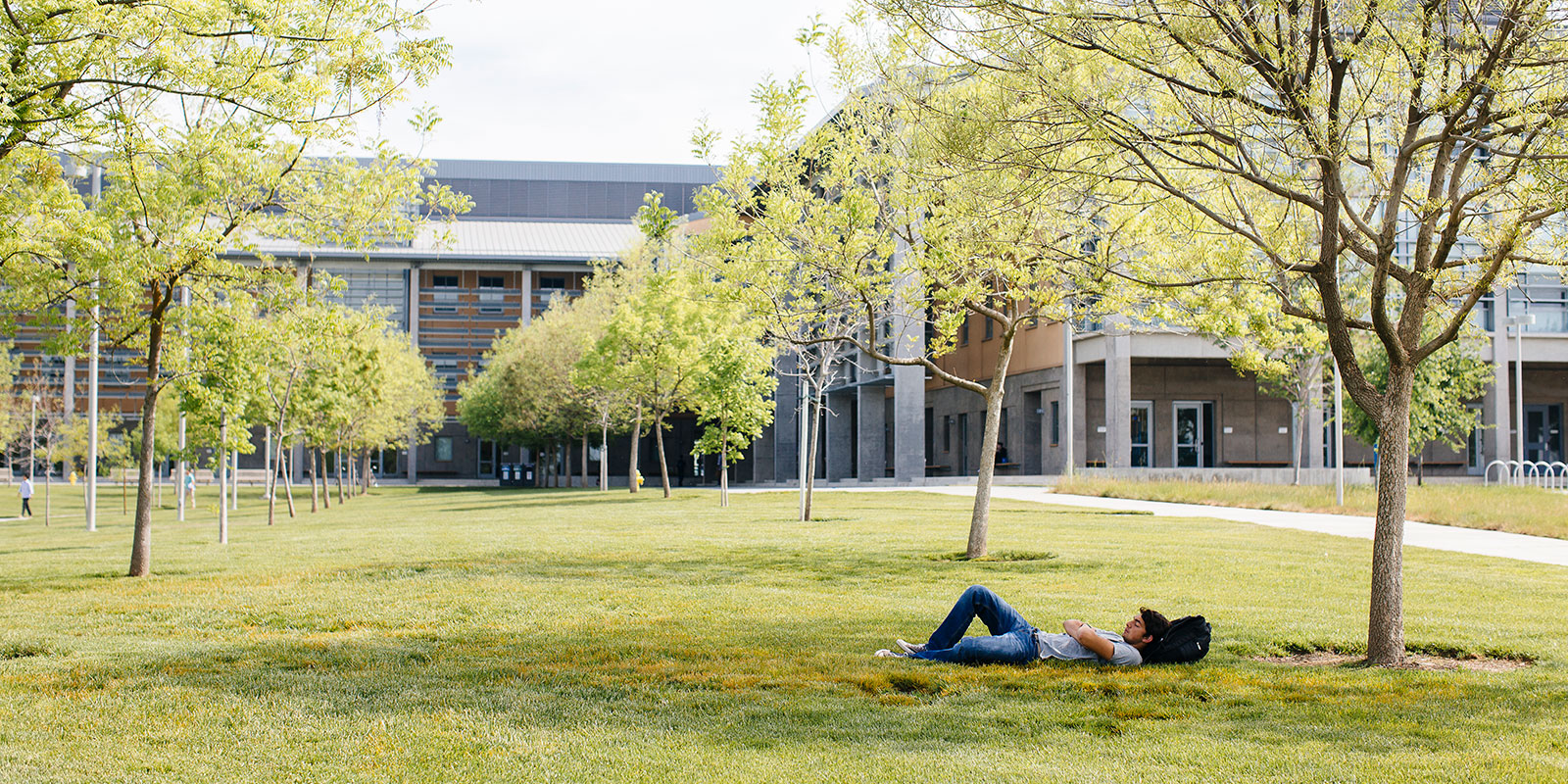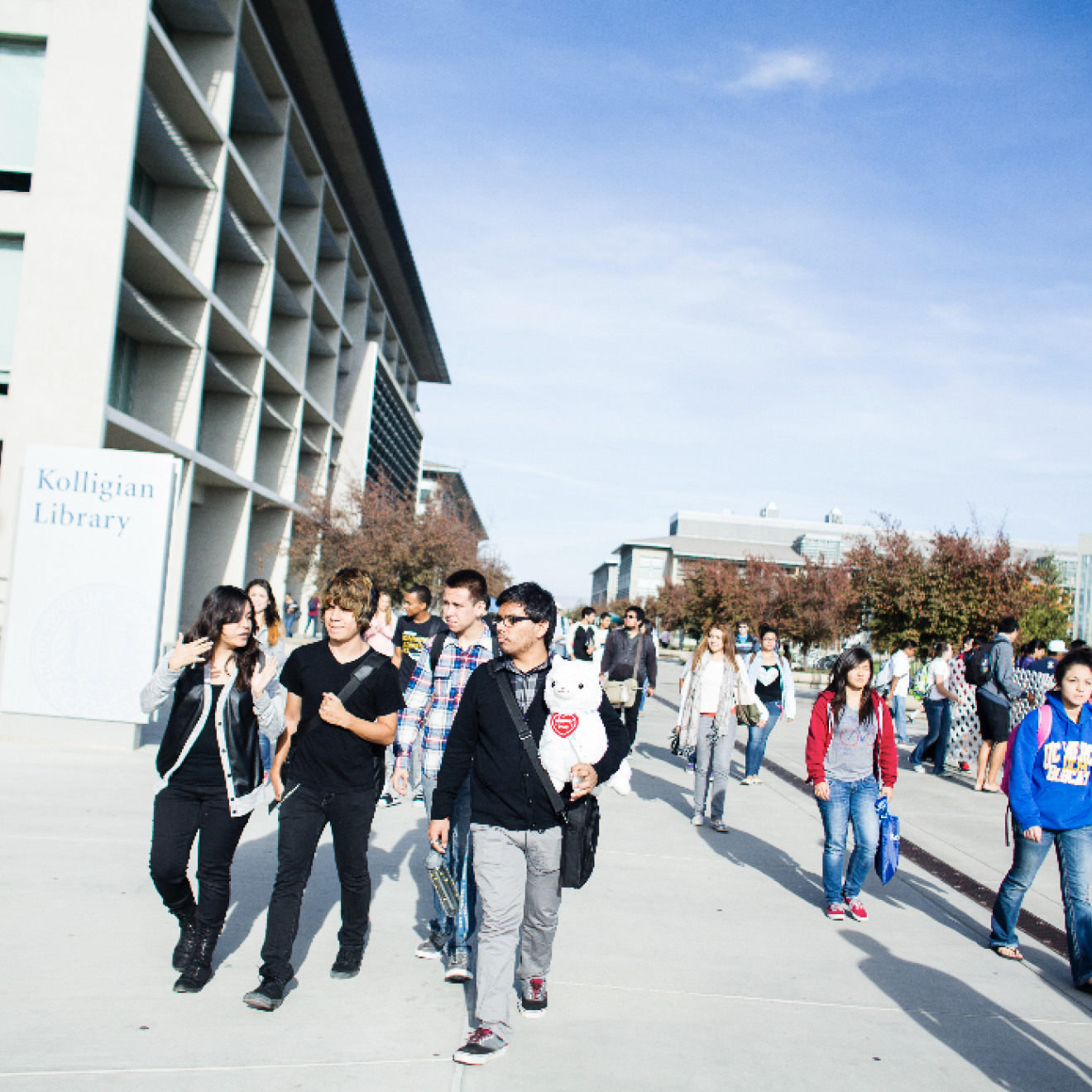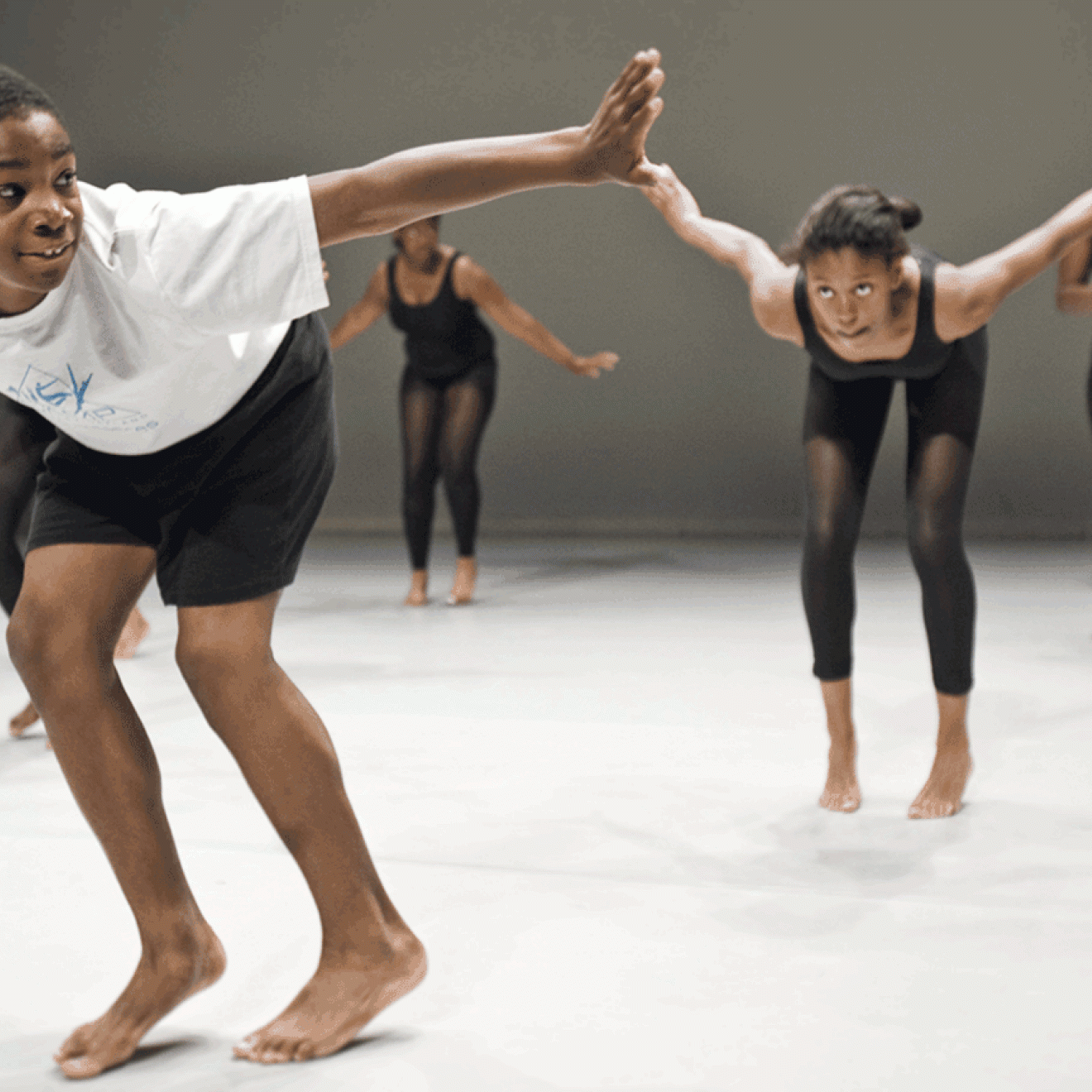To UC’s newest arrivals, welcome!
You are embarking on a transformational time of life. There will never be another quite like it, so savor the moment.
If you’re feeling a bit anxious, try to take it in stride. College is like a foreign country, with its own culture, norms and expectations, even its own lingo. Adjusting takes a little bit of time.
To make it easier, we’ve compiled some insider tips to help you navigate this strange new world:
1. Knock on your professor’s office door

Whether you’re in a class of 20 or 200, screw up the courage to go meet your professor in person during office hours.
These are the weekly time periods when professors are in their offices to meet with students. They are listed on the syllabus, or course outline, handed out on the first day of class.
Office hours aren’t just for those who need help: Faculty love it when students drop by to introduce themselves or discuss something they found particularly interesting.
If you can’t make office hours, send your professor an email or go up and introduce yourself after class.

“I always make a point of going up to a professor before or after class to introduce myself. Sometimes, I’ll start with question about the lecture, but really it’s just a chance for them to get to know who I am.” — Joyce Zamorano Sanchez, UC Davis senior, communications
Though it may seem daunting at first, building relationships with your professors will help build a much deeper understanding and interest in the subjects you’re studying. When else will you have the chance to nerd out on topics from engineering to existentialism with the world’s leading experts?
Faculty can alert you to opportunities beyond the classroom, like undergraduate research, and provide recommendations for jobs and graduate school.
2. Become a (study) groupie

When it comes to socializing in college, you may be thinking toga party. But getting together to talk calculus or anthropology can be equally social — and improve your grades to boot.
Research shows studying in groups offers some unique advantages over going it solo, from offering an emotional support system to keeping procrastination in check.
Many tutoring centers and academic departments have existing groups you can sign up for, often facilitated by a teaching assistant. To form your own, ask fellow classmates, post a notice in your dorm, or check with your resident adviser (who you’ll probably know as your “R.A.”).
Meeting regularly with a study group means you’re more likely to stay up-to-date on reading and assignments. Study groups offer a built-in resource to get help when you’re stumped, and the chance to explain things to others when you’re the one in the know — a process that has been shown to boost understanding and retention.
Plus, you get to share the cost of pizza — and you can probably even wear a toga once in a while.
3. Find your people

Few things can feel more intimidating than being the new arrival in a community of 20,000 undergraduates, many of whom already seem to know each other. But your community is out there, and there’s a way to reach them: Get involved with an affinity group or a community service organization on campus to find like-minded people.
“As a first-generation Hispanic woman, there were not a lot of people who looked like me in many of my classes,” said UC San Diego bioengineering major and peer mentor Bethania Perez. “I joined the Society for Hispanic Professional Engineers, and the Society of Women Engineers, and that’s where I really found my place.”
At the same time, Perez said, “I tell everyone, don’t be afraid to try something completely different.” Build a race car, join a hiking club, learn to step dance, serve meals to the homeless — with hundreds of student clubs, the possibilities are practically limitless. That being said, you can easily stretch yourself too thin, so sample a few that spark your curiosity and stick with those you really love.
4. Be frugal with your time
Many first-year students are surprised to learn they are only in class about 15 hours a week. But that doesn’t mean the rest is left over for sleeping in and throwing a Frisbee on the lawn.
In fact, for every hour students are in class, they should expect to spend three more hours on work outside of class, which adds up to at least as much as a full-time job. In a recent UC Davis survey, half of first year students reported spending more time studying than they expected.
And between academics, family and work responsibilities, and juggling all those clubs you just signed up for, budgeting time can be a major challenge.
An online schedule-builder like Google Calendar helps to keep track of upcoming tests and assignments, block out times for study and extracurricular activities, and send reminders for meetings.
Got a job? Counterintuitive as it may be, students who work 15 hours a week or less tend to do better academically than those who don’t work. That’s because structure actually helps them to better organize and manage their time.
Learning to say no is another pointer. It’s one of the best tools you have for managing your time.
“Students are not going to have time to do everything they want, and that means making difficult choices,” said Nikita Gupta, director of UCLA’s Grit Coaching program, which helps students build healthy attitudes for navigating challenges.
“Do a gut check and ask, ‘what do I have the energy for?’” she said. “Sometimes, that means turning down a party. Sometimes it means leaving your books on the table to take a break and do something fun.”
Budgeting your time can be fun, too — learn how UC Berkeley student Frida Hernandez turns time management into an art with bullet journaling (or see more of her journal entries like the one above).
5. Ask for help early and often
UC students have many laudable credentials. But there’s one area where their experience is often lacking: knowing how to deal with failure.
Just like an athlete training for the Olympics, a great college education isn’t supposed to be easy — it’s supposed to challenge and stretch you with skills that take work and practice to master.
Sooner or later you are going to have the humbling experience of completely blowing it on a test or assignment. Just like our UC president, our chancellors, our Nobel laureates and everybody else on campus.

“My first year was rough. I got a 60 in calculus and I freaked out. I decided to go to the tutoring center, and ended up making really good friends with a group of students I met there.” — Mia Arnold, UC Irvine junior, math
The question is what you do in response. And the correct answer is: Ask for help.
There are many places to get help. Talk to your professor, teaching assistant, and peers. All UC campuses have tutoring centers that can assist you and help you build foundational skills in areas such as writing, math and the sciences. Most departments also have graduate students and mentors that can offer individualized instruction.
Your academic advisor, dean’s office or academic success center can connect you with additional resources.
Above all, remember that struggle is part of learning. “When you challenge yourself, you’re going to fail,” said Kali Trzesniewski, specialist in cooperative extension in human ecology at UC Davis and leading researcher on growth mindset. “That’s what’s supposed to happen — it’s how you grow your brain.”
6. Choose classes carefully — and with advice

Are you a morning person or a night owl? Do you have a part-time job? Pick classes that will accommodate your needs.
Space out the hard classes: overloading on those with extra lab or discussion sections, or especially challenging workloads, can lead to cramming and make it hard to give each subject the attention it deserves.
At the same time, you’ll want to make sure you don’t wait too long to take necessary prerequisites and requirements for your major.
Your academic adviser can help. Set up a meeting as soon as you arrive on campus, and continue to meet regularly with both your academic and major advisers as your studies progress. Peer advisers are also available throughout the year to offer more immediate help.
Rely on their expertise to help create a balanced schedule and get the classes you need to graduate on time.
7. Don’t skimp on sleep

We all know the stereotype of college students as caffeine-guzzling zombies who defy the normal human need for shut-eye. But an ever-growing body of evidence shows sleep is vital to learning, memory and emotional well-being.
Before pulling an all-nighter, consider this: A UC Berkeley study found that staying up all night to cram for an exam actually reduced the brain’s ability to absorb information by 40 percent.
Hitting the sack lets you hit the books the next day with a renewed ability to learn, according to UC Berkeley sleep research. Napping is good, too. A UC Riverside study found students retained significantly more information right after a mid-day snooze.
While we sleep, knowledge is transferred from short-term storage in the hippocampus to the prefrontal cortex where it becomes hard-wired. That helps us both retain knowledge and wake up with a renewed capacity to soak up new information.
Researchers at UCSF also found that sleep strengthens neural connections that enable people to master new tasks.
Sleep is vital for mental health, too. Recent research shows even a small amount of lost sleep can increase anxiety and social isolation.
8. Feel like an impostor? Join the club
Maybe you’re the first person in your family to go to college. Maybe you are in a field where there are few people who look like you in the classroom. Or perhaps you come from generations of physicians and you want to study art.
Whatever the circumstances, there will be times when you feel like the odd one out in a community where everyone else seems to naturally fit in.
Guess what? That person you think is having an easy time is likely struggling too.
Earlier this year, UC Davis surveyed freshmen and first year transfer students: 85 percent said that at least one part of the transition (such as making friends, coping with a bad grade or fitting in) was harder than they expected it would be. So, next time you think others have it so easy and you are the only one struggling, think again.
There’s even a word for this belief: imposter syndrome.
“Almost all students wonder if they’ll fit in or if they’ll make friends. They wonder if they belong in college,” said Susan Ebeler, UC Davis associate dean for undergraduate programs. Her advice: When you feel like an imposter, flip the script and celebrate your own unique strengths and achievements. Check you aren't setting unrealistic expectations for yourself by talking to a peer, professor, or advisor, and make a plan for how to work on the areas where you want to improve.
“From resilience to independence to hard work and determination, our students have skills that helped them get here — and are major assets for their long-term success.”
So settle in, take a deep breath, and remember — you’re exactly where you belong.
Check out more of our students answering your back to school questions in our Instagram stories.
Photos courtesy Mia Arnold and Joyce Zamorano Sanchez; other photos by Elena Zhukova/University of California


